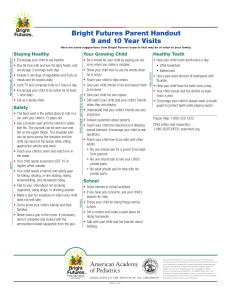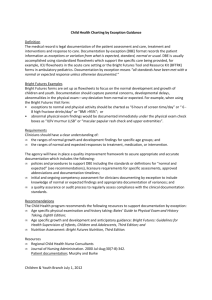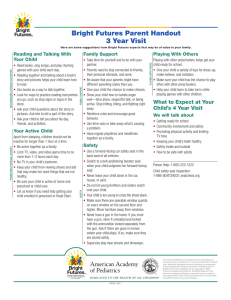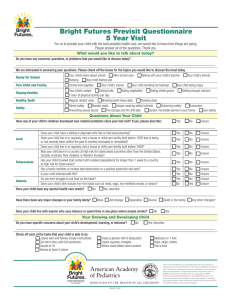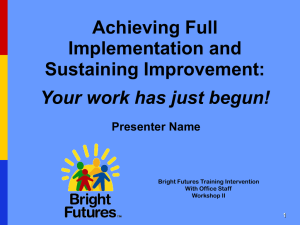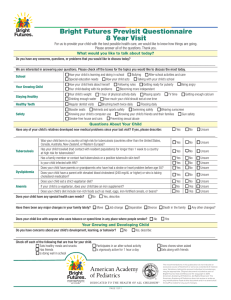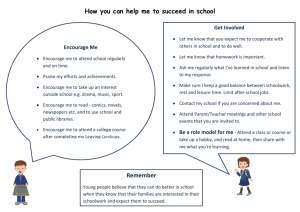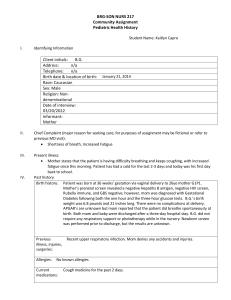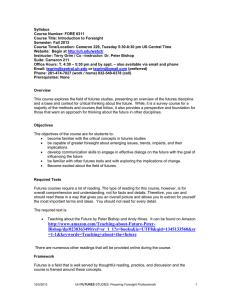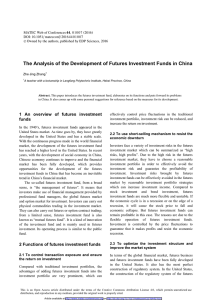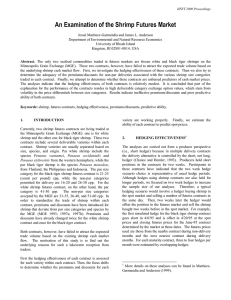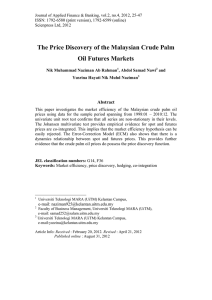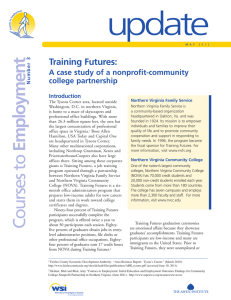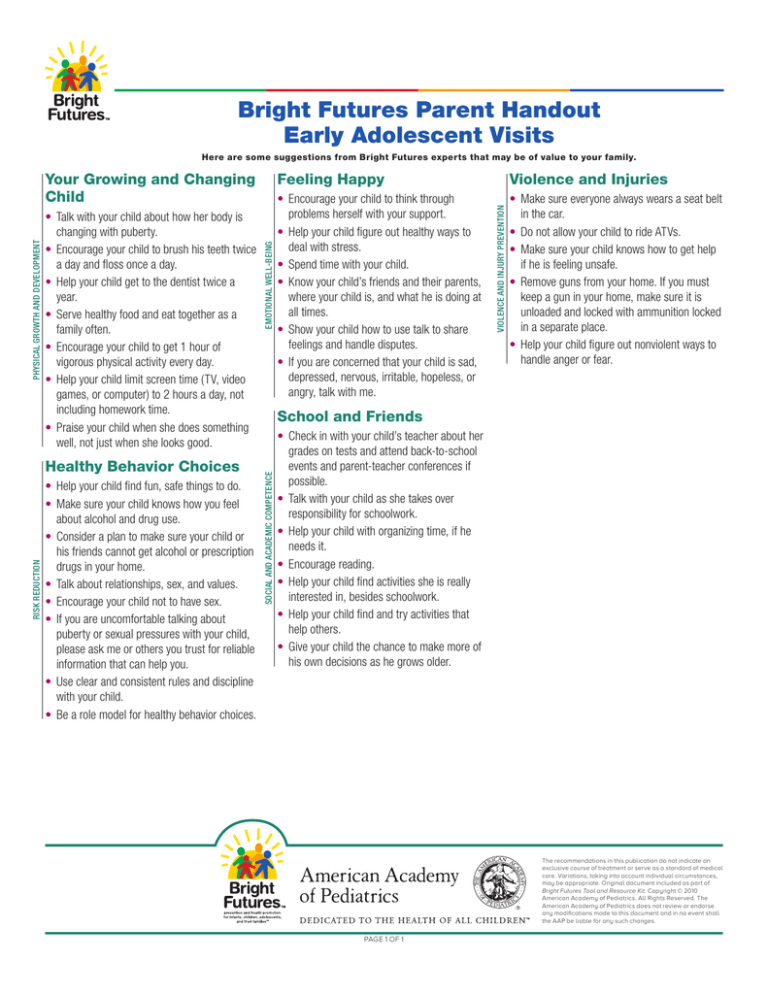
Bright Futures Parent Handout
Early Adolescent Visits
Here are some suggestions from Bright Futures experts that may be of value to your family.
RISK REDUCTION
Healthy Behavior Choices
• Help your child find fun, safe things to do.
• Make sure your child knows how you feel
about alcohol and drug use.
• Consider a plan to make sure your child or
his friends cannot get alcohol or prescription
drugs in your home.
• Talk about relationships, sex, and values.
• Encourage your child not to have sex.
• If you are uncomfortable talking about
puberty or sexual pressures with your child,
please ask me or others you trust for reliable
information that can help you.
• Use clear and consistent rules and discipline
with your child.
• Be a role model for healthy behavior choices.
Feeling Happy
Violence and Injuries
• Encourage your child to think through
problems herself with your support.
• Help your child figure out healthy ways to
deal with stress.
• Spend time with your child.
• Know your child’s friends and their parents,
where your child is, and what he is doing at
all times.
• Show your child how to use talk to share
feelings and handle disputes.
• If you are concerned that your child is sad,
depressed, nervous, irritable, hopeless, or
angry, talk with me.
• Make sure everyone always wears a seat belt
in the car.
• Do not allow your child to ride ATVs.
• Make sure your child knows how to get help
if he is feeling unsafe.
• Remove guns from your home. If you must
keep a gun in your home, make sure it is
unloaded and locked with ammunition locked
in a separate place.
• Help your child figure out nonviolent ways to
handle anger or fear.
VIOLENCE AND INJURY PREVENTION
EMOTIONAL WELL-BEING
• Talk with your child about how her body is
changing with puberty.
• Encourage your child to brush his teeth twice
a day and floss once a day.
• Help your child get to the dentist twice a
year.
• Serve healthy food and eat together as a
family often.
• Encourage your child to get 1 hour of
vigorous physical activity every day.
• Help your child limit screen time (TV, video
games, or computer) to 2 hours a day, not
including homework time.
• Praise your child when she does something
well, not just when she looks good.
School and Friends
SOCIAL AND ACADEMIC COMPETENCE
PHYSICAL GROWTH AND DEVELOPMENT
Your Growing and Changing
Child
• Check in with your child’s teacher about her
grades on tests and attend back-to-school
events and parent-teacher conferences if
possible.
• Talk with your child as she takes over
responsibility for schoolwork.
• Help your child with organizing time, if he
needs it.
• Encourage reading.
• Help your child find activities she is really
interested in, besides schoolwork.
• Help your child find and try activities that
help others.
• Give your child the chance to make more of
his own decisions as he grows older.
The recommendations in this publication do not indicate an
exclusive course of treatment or serve as a standard of medical
care. Variations, taking into account individual circumstances,
may be appropriate. Original document included as part of
Bright Futures Tool and Resource Kit. Copyright © 2010
American Academy of Pediatrics. All Rights Reserved. The
American Academy of Pediatrics does not review or endorse
any modifications made to this document and in no event shall
the AAP be liable for any such changes.
PAGE 1 OF 1

